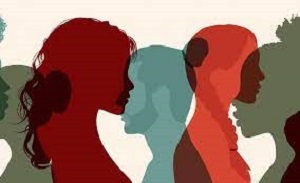Launch of Event Series on AU-EU Partnership on Peace and Security - A Focus on the Role of Women in Peacebuilding
 “The first thing that needs to change is the way that African women are imagined in policy-making”, said Laura Davis, Senior Advisor and Lead on Gender, Peace and Security at the European Peacebuilding Liaison Office (EPLO) at an online event entitled Women in Peacebuilding in the AU-EU partnership: Re-thinking assumptions held by individuals, communities and institutions. “African women are assumed to be vulnerable, they are assumed to be victims, they are assumed to lack agency. Instead, policy-makers should recognize African women’s leadership, agency and resourcefulness.” The event was hosted by the Bahá’í International Community Addis Ababa and Brussels Offices on 27 May and was the first of a series of events on the collaboration between the African Union and the European Union on peace and security issues.
“The first thing that needs to change is the way that African women are imagined in policy-making”, said Laura Davis, Senior Advisor and Lead on Gender, Peace and Security at the European Peacebuilding Liaison Office (EPLO) at an online event entitled Women in Peacebuilding in the AU-EU partnership: Re-thinking assumptions held by individuals, communities and institutions. “African women are assumed to be vulnerable, they are assumed to be victims, they are assumed to lack agency. Instead, policy-makers should recognize African women’s leadership, agency and resourcefulness.” The event was hosted by the Bahá’í International Community Addis Ababa and Brussels Offices on 27 May and was the first of a series of events on the collaboration between the African Union and the European Union on peace and security issues.
Solomon Belay, Representative of the Bahá’í International Community Addis Ababa Office, opened the meeting by affirming that peace must be considered as the next inevitable stage of the evolution of humankind and that the key is the participation of women.
“We know that in order to achieve sustainable positive peace, we need to transform the relationships between individuals, communities and institutions in a way that every member of society is not just included, but is seen as a protagonist in these processes”, said Nura Detweiler from the Bahá’í International Community Brussels Office. “An essential aspect of such transformational processes is rethinking assumptions and attitudes held by individuals, which inform the culture of communities and institutions with regard to the equality of men and women.”
Liezelle Kumalo, researcher on peacebuilding and gender at the Institute of Security Studies (ISS) explained that the involvement of women in peace processes in Africa started long before the Women, Peace and Security (WPS) Agenda was set in UN resolution 1325 20 years ago. “Whether the space is created or not, women go in and they get involved [...] It is about how we make women’s voices count.” She gave examples of African women who were at the forefront in peacebuilding processes in their communities.
Tayechalem Moges, an assistant professor for the Gender and Sexual and Reproductive Health Program at the University of Global Health Equity, explained that we need to shift from focusing on the sphere of privileged global peacemaking to building peace in local communities and families, “because when we talk about peace, it has to be peace for everybody in every situation”. In that context “we need to re-examine hierarchical relationships that are based on power, and we need to shift more into collective action that is based on service”.
Concerning the implications for the partnership of the African and the European Union in the context of fostering the meaningful participation and ownership of women in peace processes, Tayechalem Moges pointed out the need for a joint organically evolving framework “which is not rigid and which is not based on one specific model of thought or hegemony, so that local communities everywhere can participate in shaping the vision for world peace”.
The next event in the series is scheduled to take place in the coming weeks.
Source: news.bahai.org/

